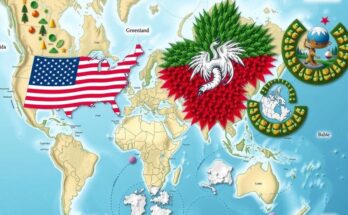The South African Communist Party (SACP) plans to independently contest the 2026 local elections, breaking ties with the African National Congress (ANC) due to dissatisfaction with the latter’s neoliberal alliances. This move aims to revitalize the SACP’s leftist agenda and engage voters disillusioned by the political system, amidst a crisis of trust in democracy following recent electoral failures.
The South African Communist Party (SACP) has transitioned to contest the 2026 local government elections independently, a significant shift from its longstanding association with the African National Congress (ANC). This pivot, confirmed at the SACP’s December Special National Congress, signals discontent with the ANC’s recent coalition with the Democratic Alliance (DA) after the latter’s underwhelming electoral performance. The SACP’s departure stems from a concern over the ANC’s drift towards neoliberal policies and the perception of being marginalized within the ruling alliance. Despite facing challenges, the SACP is determined to rejuvenate its leftist identity and engage with voters disenchanted by the current political climate. General Secretary Solly Mapaila emphasized that this move is aimed at reinforcing ANC’s original transformative mandate rather than undermining it.
This shift occurs against the backdrop of a diminished popular mandate for the ANC, following its failure to secure a majority in recent elections—its worst result since 1994. The ANC’s decision to partner with the DA has intensified longstanding grievances among its allies about neoliberal tendencies that have exacerbated poverty and inequality in the post-apartheid era. The SACP, along with the Congress of South African Trade Unions (COSATU), has expressed growing frustrations over their diminishing influence within the ANC and has pushed for a reassertion of its original leftist goals in the governance agenda. The SACP believes that a new approach is necessary to revive engagement with the disillusioned electorate.
The SACP’s decision to contest elections independently marks a substantial departure from its previous strategy and reflects urgent demands for political revitalization among leftist factions in South Africa. The party’s focus on creating a broad left front aims to address economic and social disparities exacerbated by past governance failures. Ultimately, this initiative not only seeks to restore the SACP’s identity but also to engage citizens who have felt alienated by the evolving political landscape.
Original Source: cpusa.org



